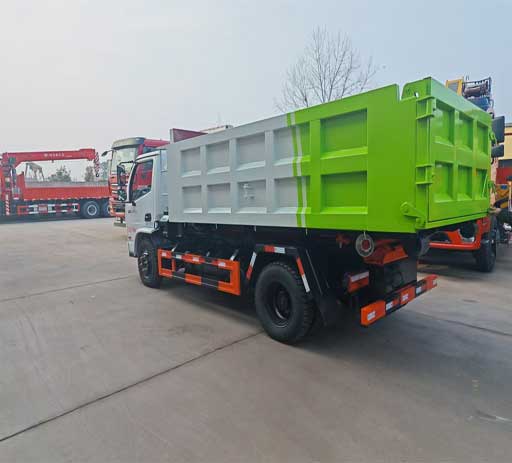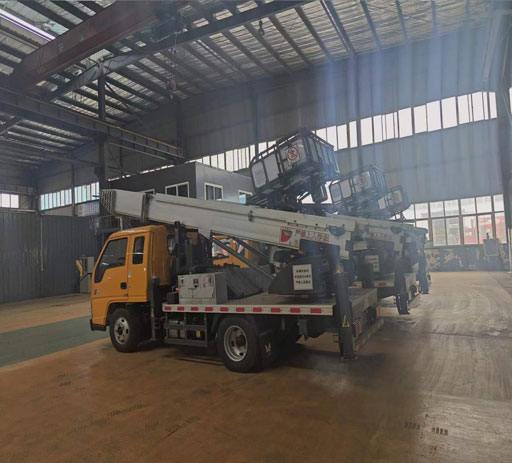Natural Gas Garbage Trucks: A Sustainable Solution for Waste Management

Introduction
As cities around the globe evolve, so too do the methods of waste management. One of the most innovative advancements is the introduction of natural gas garbage trucks. These vehicles not only offer an eco-friendly alternative to traditional diesel trucks but also present a variety of benefits ranging from operational efficiency to cost savings. In this article, we will delve deeply into the functioning of natural gas garbage trucks, their advantages and disadvantages, practical examples, tips for implementation, and answers to frequently asked questions.
Understanding Natural Gas Garbage Trucks
What Are Natural Gas Garbage Trucks?
Natural gas garbage trucks are waste collection vehicles powered by compressed natural gas (CNG) or liquefied natural gas (LNG). These trucks have been specially designed to perform the same functions as traditional diesel garbage trucks while generating fewer emissions.
The Technology Behind Natural Gas Trucks
Natural gas garbage trucks utilize internal combustion engines modified to run primarily on natural gas. The natural gas is stored in high-pressure tanks, allowing for efficient fuel use and reducing the carbon footprint. Most models are capable of running on either CNG or LNG, making them adaptable to different municipal needs.
The Environmental Impact of Natural Gas Garbage Trucks
Reduced Emissions
Natural gas combustion emits significantly lower levels of CO2, NOx, and particulate matter compared to diesel. According to studies, CNG vehicles can produce up to 30% less greenhouse gas emissions. This makes natural gas trucks a driving force in reducing the environmental impact of waste management.
Noise Pollution Reduction
Natural gas engines typically operate more quietly than diesel engines, leading to reduced noise pollution, especially in urban areas. This benefit enhances the quality of life for residents as garbage collection usually happens early in the morning or late in the evening.
Advantages of Natural Gas Garbage Trucks
Lower Operating Costs
Although the initial cost of natural gas garbage trucks can be higher, the long-term operating costs can be lower due to the price of natural gas being generally cheaper than diesel. Additionally, maintenance costs may be lower since natural gas engines typically wear less than diesel engines.
Government Incentives and Support
Many local and national governments offer financial incentives for using alternative fuel vehicles. These can include tax credits, rebates, and grants that help offset the higher purchase price of natural gas trucks.
Example: City of San Diego
San Diego has adopted natural gas garbage trucks and reported annual cost savings in fuel expenses, contributing to a more sustainable waste collection system.
Challenges Faced by Natural Gas Garbage Trucks
Infrastructure Development
One of the significant challenges for natural gas garbage trucks is the availability of refueling stations. While some municipalities may have access to natural gas fueling stations, others may require investment in infrastructure to support their use.
Range Limitations
Natural gas trucks generally have a shorter range than diesel trucks, which may impact their effectiveness in larger municipalities or rural areas. However, advancements in technology continue to improve the range of these vehicles.
Practical Tips for Implementing Natural Gas Garbage Trucks
Evaluate Your Needs
Before making the switch to natural gas garbage trucks, assess your specific needs. Factors such as the scale of waste collection, the available infrastructure, and budget constraints should be carefully considered.

Select the Right Vehicle
Not all natural gas garbage trucks are created equal. Research different manufacturers and models to find one that meets performance standards, fuel efficiency, and reliability for your specific waste management needs.
Case Studies of Successful Natural Gas Garbage Truck Programs
Los Angeles County
Los Angeles has made significant strides in waste management through the introduction of natural gas garbage trucks. By utilizing a fleet of these eco-friendly vehicles, the county has significantly reduced its carbon emissions. They also innovated by using biogas from landfills to fuel some of the vehicles, creating a closed-loop waste management system.
New York City
New York City introduced a fleet of natural gas garbage trucks in response to its growing waste management challenges. The reduction in emissions and noise has been notable, and residents have expressed appreciation for the quieter, cleaner collection process.
The Economic Perspective

Initial Investment vs. Long-Term Savings

While the upfront costs of natural gas garbage trucks can be high, municipalities should weigh these costs against long-term savings in fuel and maintenance. A comprehensive cost-benefit analysis can provide clarity on the financial implications of switching from diesel to natural gas.
Financing Options
Various financing options are available, including leasing programs, grants for green vehicles, and loans tailored for municipalities transitioning to natural gas fleets. Exploring these avenues can ease the financial burden.
The Future of Natural Gas Garbage Trucks
Technological Advancements
The future holds promise for natural gas garbage trucks, with ongoing innovations improving fuel efficiency, operating ranges, and emissions reductions. These advancements could further enhance the practicality of natural gas as a leading fuel alternative in waste management.
Growing Adoption Rates
As environmental regulations tighten and public awareness of sustainability grows, the adoption of natural gas garbage trucks is likely to increase. Communities worldwide are recognizing the importance of reducing their carbon footprints, making natural gas a strategic choice going forward.
Frequently Asked Questions
1. How do natural gas garbage trucks compare in efficiency to diesel trucks?
Natural gas trucks generally offer similar performance in terms of efficiency but have the added benefit of lower emissions.
2. Are natural gas garbage trucks safe?
Yes, natural gas garbage trucks undergo rigorous safety testing. Natural gas is also less hazardous in case of a leak compared to gasoline or diesel.
3. What type of maintenance do natural gas garbage trucks require?
Natural gas engines generally require less maintenance than diesel engines, but they still need regular checks, including inspections of the fuel system and engine cooling systems.
4. Can natural gas garbage trucks run on renewable natural gas (RNG)?
Yes, many natural gas trucks can operate using RNG, which is produced from organic waste and further reduces their environmental impact.
5. What are the upfront costs associated with natural gas garbage trucks?
Upfront costs can vary widely, but purchasing a natural gas garbage truck can be 10-30% more expensive than a diesel counterpart depending on make and model.
6. How can municipalities finance the transition to natural gas trucks?
Municipalities can explore government grants, tax incentives, leasing options, and loans specifically designed for green vehicles to finance the transition.
